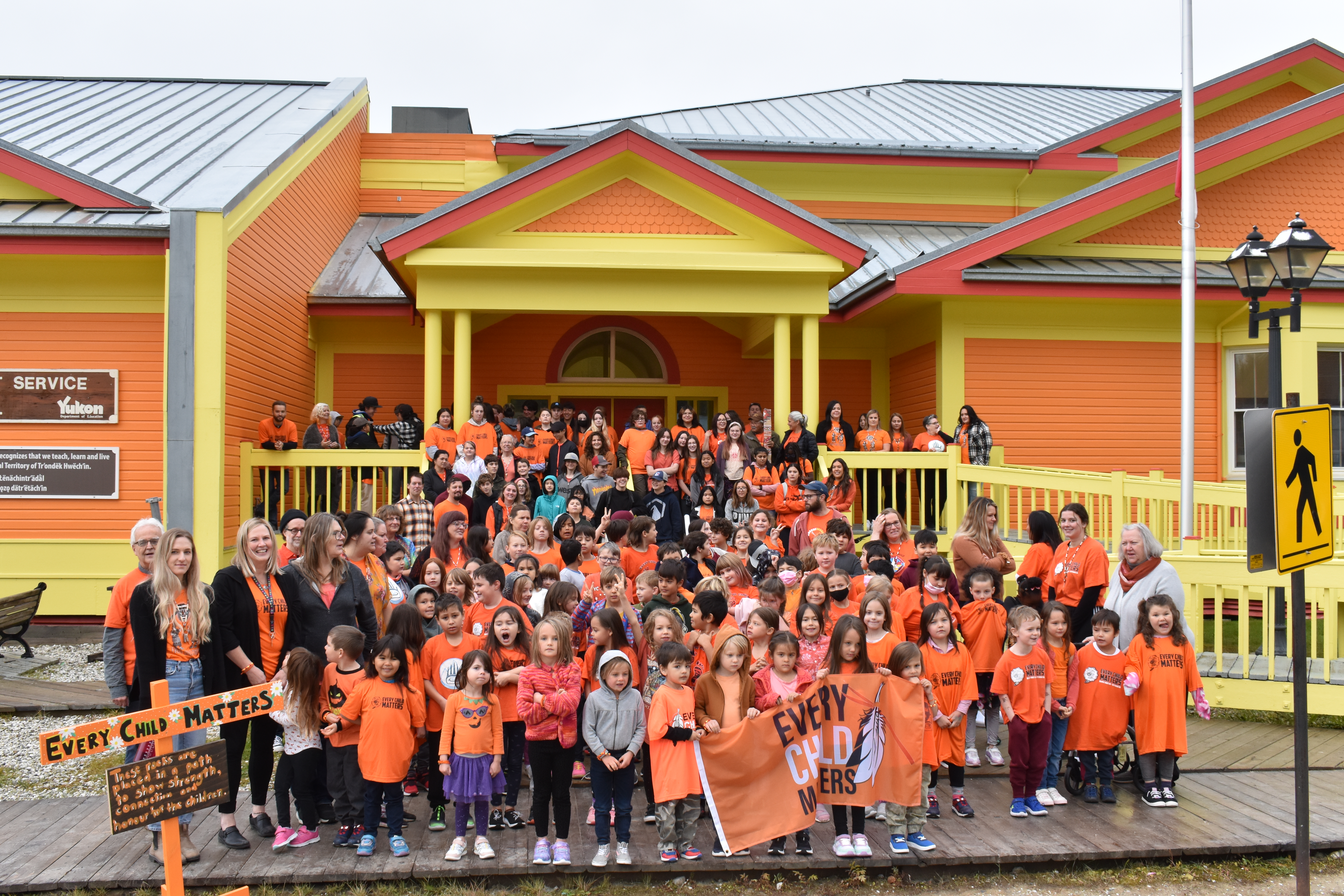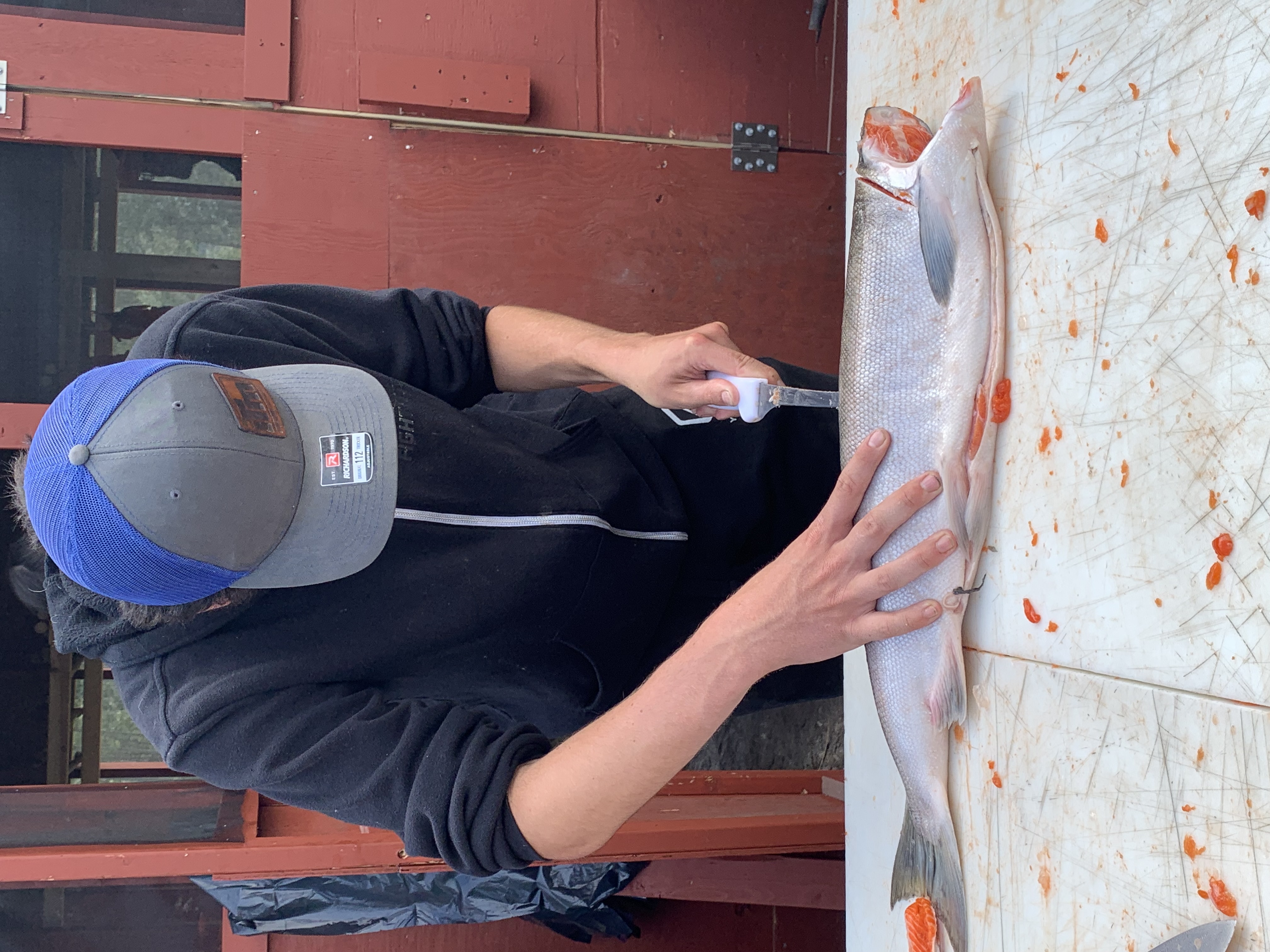
Pathways: Co-governing education in Trʼondëk Hwëchʼin Traditional Territory
For years, education has been used as a tool of assimilation across Canada. It’s the history and lived experience of many Trʼondëk Hwëchʼin citizens.
Jody Beaumont is Education Director for the Trʼondëk Hwëchʼin Government. She says education became a major priority during the negotiation of land claims. Trʼondëk Hwëchʼin believes that education is the backbone of a strong society.
“The Trʼondëk Hwëchʼin Land Claims Working Group recognised the importance of education in building a successful, prosperous future for the nation,” she says. “Education is a critical piece of realizing self-determination, understanding identity and empowering citizens to contribute to the community.”
Jody says Trʼondëk Hwëchʼin saw the education system failing its students.
“It really motivated the community during the land claims process,” she says. “The working group wanted tools in place to bring equity back in education and to ensure the First Nation had the authority to inform and govern any education system within its Traditional Territory.”
To ensure the Government of Yukon and Trʼondëk Hwëchʼin shared responsibility over education, Trʼondëk Hwëchʼin proposed a new clause, 17.7, under Trʼondëk Hwëchʼin’s Self-Government Agreement.
“Through the self-government agreement,Trʼondëk Hwëchʼin wanted to ensure a co-governing relationship would be established. Trʼondëk Hwëchʼin was granted authority equal to the Yukon and Canada when it came to designing, delivering and administering education,” she says.

Co-governing education
In 2013, under section 17.7 of Trʼondëk Hwëchʼin’s Self Government Agreement, the Government of Yukon and Trʼondëk Hwëchʼin signed an education agreement.
It established an education oversight committee with equal representation from the Yukon government and Trʼondëk Hwëchʼin. The committee created a work plan that identified joint priorities from both partners.
Suzan Davy, Assistant Deputy Minister of First Nations Initiatives with the Department of Education, admits co-governance was a big shift for the government, and it took some time to understand what the relationship would look like.
“Ten years ago you didn't talk about co-governance with First Nations, it just wasn’t something that had been done before,” she says. “It took some understanding on our part, but we’re moving in the right direction now.”
Jody agrees. She says very little happened over a decade to move forward, but that’s changed in the last few years.
Over the past year, Yukon government has increased capacity in their First Nations Initiatives team, which has helped them focus on this area as a priority.
“We’re building our team,” says Suzan. “Now we have to show some actions on our joint priorities to build trust with leadership and the community.”
Jody says implementing these changes is not an easy task. “One of the biggest challenges is explaining the Dënezhu way of knowing,” she says. “The Department of Education has a program and service-based mindset of education, and Dënezhu is a system change.”
Jody BeaumontIt’s about getting away from ‘us and them’ and using the strengths of Traditional Knowledge and the western system to benefit everyone.
Building a better system
The vision of the Land Claims Working Group was to build an education system that better served Trʼondëk Hwëchʼin citizens and everyone living within their Traditional Territory.
Jody says the 17.7 provision was created in the spirit of Together Today for Our Children Tomorrow.
“Together Today for Our Children Tomorrow. is about governments coming together to build a system that improves the lives of everyone,” says Jody.
Jody says the current system is broken. Some of the messages, built into the system, quietly tell Indigenous children they don’t belong.
“We need a better system that reflects and is founded in the lands that we're on, and speaks to the values of the people who live here,” she says. “The system needs to propel and empower kids and people throughout their lives to contribute to their community in ways that matter here.”
Suzan says Trʼondëk Hwëchʼin’s approach to education is a model for the territory.
“Their education department is completely integrated into their school, which is unlike any school in the territory and really speaks to the co-governance piece,” she says.
Trʼondëk Hwëchʼin and the Government of Yukon are building a new model of co-governed education that brings the vision of Together Today for Our Children Tomorrow to life.

Section 17.7: Education co-governance
Between 1992 and 1997, Trʼondëk Hwëchʼin’s Land Claims Working Group met every Thursday. There were 10 official members of the working group, but the meetings were open to all Trʼondëk Hwëchʼin citizens.
Education was a priority for the group. Members saw that the system was failing Trʼondëk Hwëchʼin students and it needed to be fixed. They envisioned a single unified education system in Dawson City that reflected the integrated town.
Trʼondëk Hwëchʼin wanted a system where Trʼondëk Hwëchʼin and non-Trʼondëk Hwëchʼin students could learn together and grow up side-by-side. The curriculum would balance Trʼondëk Hwëchʼin history, culture, language and geography with western education. It would be a true partnership, co-governed by the Government of Yukon and Trʼondëk Hwëchʼin.
To ensure the Government of Yukon and Trʼondëk Hwëchʼin shared responsibility over education, Trʼondëk Hwëchʼin proposed changes to the education clause 24.3.2 under the Umbrella Final Agreement, and proposed a new clause, 17.7, under Trʼondëk Hwëchʼin’s Self-Government Agreement.
The new clause guaranteed the government would “...negotiate the division and sharing of responsibility for the design, delivery, and administration…” of education.
Trʼondëk Hwëchʼin fought hard for the 17.7 clause, which granted it the authority to co-govern all education within its Traditional Territory. In July 1998, Trʼondëk Hwëchʼin signed its Final and Self-Government Agreements.
Trʼondëk Hwëchʼin was the only Yukon First Nation to have the 17.7 provision in its Self-Government Agreement. However, four other First Nations worked with the Yukon and federal governments to amend their Self-Government Agreements to also include the 17.7 clause.
Now, Carcross/Tagish First Nation, Selkirk First Nation, Little Salmon Carmacks First Nation and Ta'an Kwäch'än Council also have the authority to co-govern education within their Traditional Territories. The Government of Yukon and the Government of Canada continue to work with any other Yukon First Nations interested in making this amendment.
